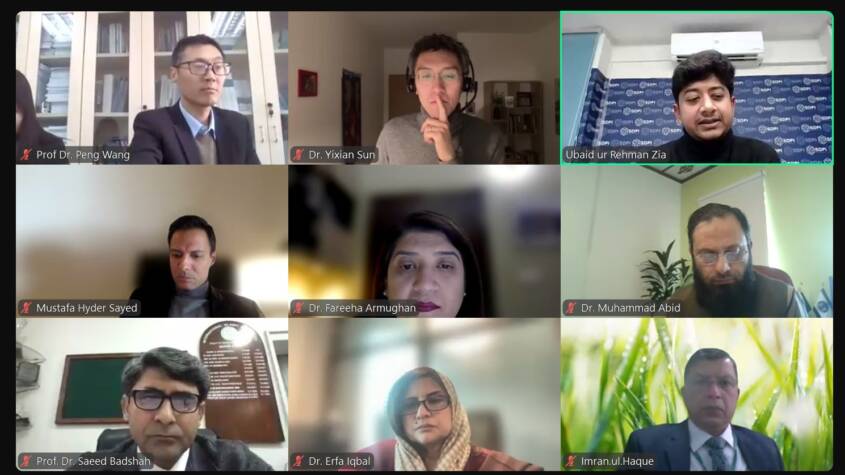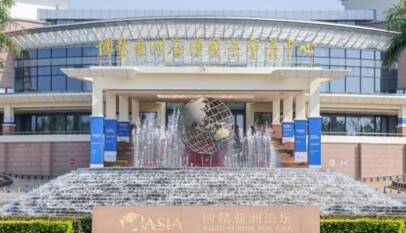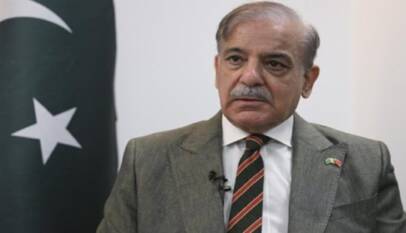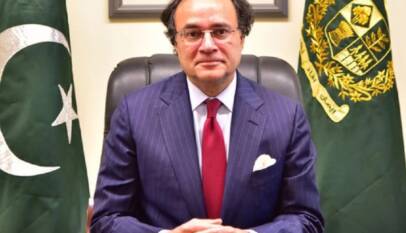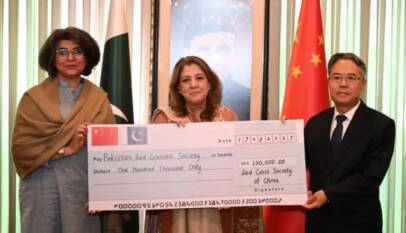Experts highlight green SEZs under CPEC for sustainable development
Experts emphasized the need for enhanced Pakistan-China collaboration to develop green Special Economic Zones (SEZs) under the China-Pakistan Economic Corridor (CPEC), focusing on low-carbon development aligned with global Sustainable Development Goals (SDGs). A webinar by the Sustainable Development Policy Institute (SDPI), under the Green CPEC Alliance, showcased strategies to integrate environmental sustainability with economic growth. Dr. Erfa Iqbal from the Board of Investment detailed Pakistan’s efforts to accelerate SEZ development with eco-friendly approaches, while Mustafa Hyder Sayed of the Pakistan-China Institute stressed the importance of eco-industrial parks for industrial growth. Chinese experts shared successful low-carbon models, urging localization of renewable energy and electric vehicle markets in Pakistan to support its green transition.
ISLAMABAD – The experts on Monday emphasised the significance of enhanced collaboration between Pakistan and China to learn from the latter’s experience in developing green special economic zones (SEZs) under CPEC, to raise climate competitive industry, which is crucial for low-carbon development and aligned with global sustainable development goals (SDGs).
The Sustainable Development Policy Institute (SDPI) under the auspice of Green CPEC Alliance hosted a webinar titled “Development of SEZs under CPEC: Learning from China’s Green Model,” exploring strategies to create sustainable special economic zones (SEZs) in Pakistan by drawing on China’s expertise in green industrialization. The session brought together experts and policymakers to discuss integrating environmental sustainability with economic growth in the SEZ framework under the China-Pakistan Economic Corridor (CPEC).
Executive Director General/Additional Secretary, Board of Investment, Dr. Erfa Iqbal highlighted the ongoing efforts to accelerate Pakistan’s SEZs development, including satellite imaging, marketing plans, and incentives for foreign and local investors. She highlighted the importance of integrating environmental considerations into economic planning and welcomed collaboration with Chinese experts to guide the transition to eco-friendly SEZs. “Of the nine SEZs under CPEC, four are already operational, with progress on the remaining zones moving at full throttle,” Dr Iqbal stated. She underscored that the SEZ model, proven globally and in China, is being applied in Pakistan to create centers of excellence for economic development. “Government-to-government, government-to-business, and business-to-business initiatives are all underway to strengthen our SEZ framework. The first one-stop service office for foreign investors will soon be operational in Islamabad,” she revealed. She emphasized the inseparability of economic and environmental progress, asserting that Pakistan’s economic development must align with global carbon emission reduction goals.
In his keynote address, Mustafa Hyder Sayed, Executive Director of the Pakistan-China Institute, emphasized the need for eco-industrial parks as the next step for Pakistan’s industrial growth. He noted the importance of green innovation supply chains, robust research and development initiatives, and financial markets to drive sustainability. He underscored the necessity of starting with small-scale successful industrial parks that could evolve into green eco-industrial parks. Stressing the importance of strategic site selection for SEZs, Sayed criticized the location of Rashakai SEZ, terming it politically motivated rather than strategic.
Head of Energy Unit at Sustainable Development Policy Institute (SDPI), Ubaid ur Rehman Zia mentioned that Pakistan is currently the leading market for Solar PV growth. In 2024, Pakistan-China collaboration led to import of around 16 GW of solar PV capacity in Pakistan, worth over $2 billion. Similarly, Pakistan’s Electric Vehicle market has started developing, again through China’s support. Ubaid mentioned that the SEZs under CPEC serve as a key opportunity for localization of Pakistan’s Renewable Energy and Electric Vehicle Market, which would support its low-carbon development. He further urged the Chinese private sector to come and invest here.
Dr Peng Wang from the Guangzhou Institute of Energy Conversion shared Guangdong Province’s success as a low-carbon industrial zone. Highlighting initiatives like green manufacturing audits, energy optimization, and sectoral carbon peaking plans, he demonstrated how policy alignment and technological innovation have enabled Guangdong to exceed its carbon reduction targets. Dr Wang suggested similar structured reforms for Pakistan, including city- and sector-level carbon neutrality plans.
Finance Minister highlights China’s role in Pakistan’s digital and financial transformation
Finance Minister Muhammad Aurangzeb has said Pakistan intends to prefer Chinese Investment…



